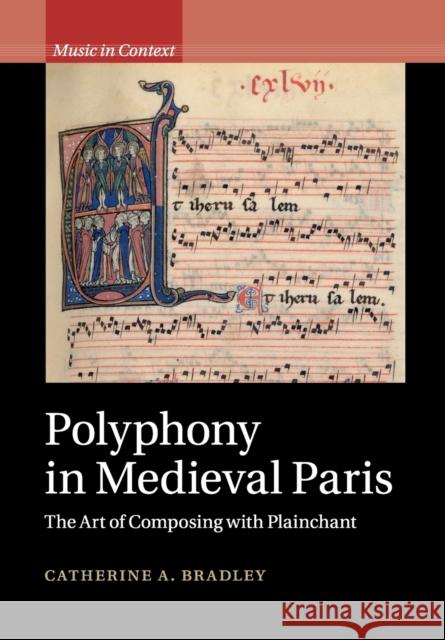Polyphony in Medieval Paris: The Art of Composing with Plainchant » książka
topmenu
Polyphony in Medieval Paris: The Art of Composing with Plainchant
ISBN-13: 9781108407571 / Angielski / Miękka / 2020 / 299 str.
Polyphony in Medieval Paris: The Art of Composing with Plainchant
ISBN-13: 9781108407571 / Angielski / Miękka / 2020 / 299 str.
cena 154,78
(netto: 147,41 VAT: 5%)
Najniższa cena z 30 dni: 130,92
(netto: 147,41 VAT: 5%)
Najniższa cena z 30 dni: 130,92
Termin realizacji zamówienia:
ok. 16-18 dni roboczych.
ok. 16-18 dni roboczych.
Darmowa dostawa!
Redefines musical analysis for a period that marks the beginnings of composition as we know it now.











